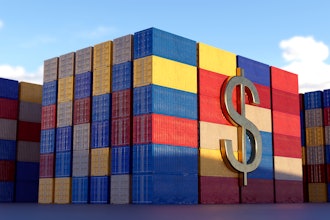BEIJING (AP) — China's biggest steelmaker said Thursday it has shut down a mill in Shanghai in a new sign of weakening growth in the world's second-largest economy.
Baosteel Group's announcement adds to a drumbeat of bad news including a decline in trade and corporate profits despite two interest rate cuts and higher government spending on public works construction. Growth fell to a three-year low in the latest quarter and officials including President Hu Jintao have warned it could fall further before rebounding.
Baosteel said it was closing its mill in Shanghai's Luojing district to avoid mounting losses at the facility amid weak demand for steel plate that is used in shipbuilding and construction.
The move by one of China's most prominent and prosperous companies reflects the painful squeeze that has hit producers of steel, aluminum, cement and some other goods. They grew fast as investment in new factories and other assets soared in the years before the 2008 global crisis and now production capacity far outstrips anemic demand.
"There are signs of severe overcapacity in steelmaking and other industries as well," said Capital Economics analyst Mark Williams.
"It's going to be painful for a lot of industries in China," said Williams. "And the pain is going to be felt beyond China's borders because a lot of companies elsewhere in the world have prospered from selling commodities and capital goods to China. The outlook for them is not so rosy."
China's demand for steel has been hurt by government curbs imposed on construction to prevent overinvestment and cool surging housing costs. Shipbuilding also has suffered; its industry group says orders are down 50 percent compared with a year ago and news reports say dozens of shipyards might close for lack of business.
The Shanghai mill, which Baosteel bought in 2008 for 14 billion yuan ($2.2 billion), had a production capacity of 3 million tons a year, according to Chinese news reports.
China's economic growth fell to 7.6 percent in the three months ended in June. That is robust by the standards of the United States and Japan, where growth this year is forecast in low single digits, but is painful for Chinese companies that rely on high growth to drive demand for new factories, apartments and other assets.
Analysts are forecasting a rebound late this year or in early 2013 but say it likely will be too weak to support global growth without improvement in the United States and Europe. Hu warned in a speech this month at the Asia Pacific Economic Cooperation meeting in Russia that "pressure for economic growth to slow is obvious."
The communist government has tried to support growth by approving a multibillion-dollar wave of investment projects and construction of public facilities such as subways and airports. But authorities have moved cautiously after their huge stimulus in response to the 2008 downturn ignited inflation and a wasteful building boom.
Also Thursday, the government reported total profits for China's biggest industrial companies fell for a fifth month in August, declining 6.2 percent from a year earlier. The National Bureau of Statistics said profits for state-owned companies such as Baosteel fell 12.7 percent from a year earlier, while those for private sector companies rose 15.1 percent.
Chinese steelmakers lost money four out of the first seven months of the year, according to their industry group, the China Iron & Steel Association.
Some industries have been hit even harder. Chinese producers of solar panels, an industry in which supply far outstrips demand, have reported losses of hundreds of millions of dollars this year.
China accounts for about half of world steel production and its voracious appetite for imported iron ore has helped to drive economic booms for Australia, Brazil and other suppliers.
Baosteel was the first major steel producer to announce the closure of a mill while others have kept mills operating at low capacity, buoyed by loans and subsidies from local governments that want to avoid losing jobs.
Baosteel had some 117,000 employees as of the end of 2011, according to the company website. It reported 18 billion yuan ($2.9 billion) in profit last year despite the slowing Chinese economy.
Even after China's growth recovers, analysts say industries such as steel and cement production will see much lower demand than they did during the investment boom.
Chinese authorities have pointed to cement, solar panels, wind turbines and other industries as areas in which overcapacity should be reduced, suggesting they might let companies go bankrupt or arrange mergers.
___
Baosteel Group: www.baosteel.com






















